 October 3, 2019 John E. Ross, KD8IDJ, Editor
| ||||||
Bidding in ARRL Online Auction Begins on October 17 More than 230 items will go on the block as bidding begins on Thursday, October 17, at 10 AM EST (1400 UTC) for the 14th Annual ARRL Online Auction. The auction will continue through Thursday, The 2019 auction includes lab-tested QST "Product Review" gear, vintage books, used equipment, and one-of-a-kind items, plus the ARRL Lab team has contributed four of its very popular "Mystery Junque Boxes." Some premier "Product Review" items up for bid include the Elecraft KPA 1500 legal-limit HF and 6-meter linear amplifier, the Icom IC-7610 HF and 6-meter transceiver, the Palstar LA-1K 160 - 6 meter amplifier, the FlexRadio Systems FLEX-6400M HF and 6-meter SDR The auction will also offer items donated from the popular television series Last Man Standing, starring Tim Allen, an actual radio amateur who portrays the fictional Mike Baxter, KA0XTT, in the show, which has featured ham radio in some episodes. Among book offerings in the auction are the sold out 2019 Handbook Boxed Set, a special defense edition of The Radio Amateur's Handbook from 1942, and a 1949 ARRL Antenna Book. Proceeds from the annual Online Auction benefit ARRL education programs. These include activities to license new hams, strengthen All bidders must register (your arrl.org user ID and password will not work on the auction site). If you have registered for a previous ARRL Online Auction, you may use the same login information. If you have forgotten your user ID or password, click the "Help" tab for instructions on how to retrieve these credentials. Make sure your correct address and other information are up to date. The auction site only accepts Visa and MasterCard. IARU Administrative Council Steps Up Efforts to Combat Radio Spectrum Pollution The International Amateur Radio Union (IARU) Administrative Council (AC) met on September 28 and 29 in Lima, Peru, to conduct a final review of IARU preparations for the International Telecommunication Union (ITU) World Radiocommunication Conference 2019 (WRC-19). The Council's annual meeting took place just ahead of the triennial WRC-19's lengthy agenda includes items of direct interest to the Amateur Service, including consideration of improvements to the 50 MHz amateur allocation in Region 1, protection of existing amateur allocations, and development of the agenda for the next WRC in 2023. IARU volunteers and member-societies have been working for the past 4 years -- since WRC-15 -- to influence proposals from national telecommunications administrations and regional telecommunications organizations (RTOs) that will be considered at WRC-19, which gets under way late this month in Sharm El-Sheikh, Egypt. "IARU efforts have reduced the number of potentially damaging proposals that otherwise might have been offered for consideration, but several challenges remain," IARU said in a news release. "A small team of IARU observers will attend WRC-19 and will work with amateurs and friends on national delegations to reach the best possible outcomes."
Looking beyond WRC-19, the AC plans to increase its commitment to influencing the work of standards organizations, particularly the International Special Committee on Radio Interference (CISPR) and its participating national committees. IARU cited "the rising level of radio spectrum pollution caused by unnecessary and unwanted emissions from electronic devices, such as wireless power transfer for the recharging of electric vehicles (WPT-EV), is a serious threat to radiocommunication services including the Amateur Service." Council participants engaged in an extensive discussion to identify the principal challenges facing Amateur Radio and how the IARU and its member-societies might better address them. Upgrading of the current websites of the IARU and its three regional organizations is under way and should be completed in the coming months. The AC also adopted a Brand Guide to ensure a common identity across the IARU organization. The Council's next in-person meeting will take place in October 2020, just prior to the IARU Region 1 Conference in Novi Sad, Serbia. Virtual AC meetings are also planned beginning in December 2019 and January 2020. Read more. -- Thanks to IARU Secretary David Sumner, K1ZZ Ten Teams to Compete in Spectrum Collaboration Challenge Championship Event Ten teams of academic, industry, and entrepreneurial technologists are set to compete in the Spectrum Collaboration Challenge (SC2) championship on October 23 at the Mobile World Congress in Los Angeles. The Defense Advanced Research Projects Agency (DARPA) -- a US Department of Defense agency -- announced the qualifiers in September. SC2 is a 3-year contest to unlock the potential of the RF spectrum using artificial intelligence (AI). The teams' radio designs will go head to head during a live competition, and the first-, second-, and "These teams have fought long and hard for their chance to compete in SC2's Championship Event," SC2 Program Manager Paul Tilghman said in a news release. "After 3 years of competition, this final roster reflects some of the best minds working at the intersection of AI and wireless communications." Teams representing Drexel University; the University of Florida; Northeastern University; Vanderbilt University; a group from Ghent University, the University of Antwerp, and Rutgers University will compete in this month's event, along with teams of independent researchers. "Since its beginning in 2016, SC2 has challenged teams to merge recent advances in AI and machine learning with the expanding capacities of software defined radios (SDR) to create radio networks capable of autonomously collaborating on ways to best utilize the spectrum moment-to-moment," the news release said. "Some teams employ rule-based, or 'first wave' AI approaches that attempt to capture all possible moves or scenarios a radio could face and then define a corresponding response. Others are using more advanced AI and machine learning, or 'second wave' approaches that exploit pattern recognition to help their radios avoid interfering with their wireless neighbors while skillfully navigating to open spectrum. A few teams use a combination of the two approaches." The aim of SC2 is to determine if AI-enabled radios can autonomously navigate the wireless spectrum, eliminating the need for rigid, human-managed spectrum bands or traditional spectrum allocation.
DARPA says that SC2 began with more than 30 teams that either submitted a proposal or successfully completing technical hurdles developed by SC2 organizers. A championship play-in round was held in early September to determine the final 10 teams that would compete in the Championship Event. Grant Imahara, known for his work on the Discovery series MythBusters and Netflix series White Rabbit Project, will serve as the master of ceremonies. He will provide commentary with DARPA's Tilghman and GNU Radio Foundation President Ben Hilburn, KJ4DDR. The finale is free to attend and open to all MWC 2019 Los Angeles attendees as well as the general public. Those without a 3-day pass may email to request a free 1-day pass to the SC2 Championship Event. So Now What? Podcast "You're not 'Just' a Tech" -- featuring Andy Milluzzi, KK4LWR -- will be the focus of the new (October 3) episode of the So Now What? podcast for Amateur Radio newcomers.
So Now What? is sponsored by LDG Electronics, a family owned and operated business with laboratories in southern Maryland that offers a wide array of antenna tuners and other Amateur Radio products. ARRL Communications Content Producer Michelle Patnode, W3MVP, and ARRL Station Manager Joe Carcia, NJ1Q, co-host the podcast. Presented as a lively conversation, with Patnode representing newer hams and Carcia the veteran operators, the podcast will explore questions that newer hams may have and the issues that keep participants from staying active in the hobby. Some episodes will feature guests to answer questions on specific topic areas. Listeners can find So Now What? on Apple iTunes, Blubrry, Stitcher (free registration required, or browse the site as a guest) and through the free Stitcher app for iOS, Kindle, or Android devices. Episodes will be archived on the ARRL website. The Weather Channel Cites "Old School Tech" Amateur Radio as Storm Resource Julio Ripoll, WD4R, Amateur Radio Assistant Coordinator of WX4NHC at the National Hurricane Center (NHC) explained Amateur Radio's role during severe weather situations to interviewers from The Weather Channel (TWC). In a September 16 segment headlined, "Using Old School Tech During a Storm," Ripoll -- seated at WX4NHC -- told Weather Channel interviewers Rick Knabb and Mike Bettes, that information NHC forecasters receive via Amateur Radio volunteers and spotters "sometimes fills in gaps they can't get from satellites or reconnaissance." Knabb recounted an occasion when he was trying to pin down information about a storm system in Central America. "The only way I was able to accurately document what happened with that system in Central America was because of data through the ham radio operators that relayed it," he told Ripoll.
Over the weekend, Ripoll expressed appreciation to WX4NHC, Hurricane Watch Net, and VoIP Hurricane Net volunteers for the time they donate during hurricanes and the reports they send to WX4NHC. "Sometimes, we sit for hours listening to static. Sometimes, we receive many reports that are unremarkable. Sometimes, we receive very few reports. But then there are those times that one or two reports make a difference," Ripoll said. He noted that NHC Hurricane Specialist Stacy Stewart cited Amateur Radio in a Hurricane Humberto advisory. The advisory noted, "An Amateur Radio operator at Ports Island near the southern end of Bermuda reported a sustained wind of 75 MPH and a gust to 104 MPH during the past hour. An Amateur Radio operator in Somerset Village recently reported a sustained wind of 70 MPH and a gust to 89 MPH." -- Thanks to Julio Ripoll, WD4R ARISS Invites Proposals to Host Ham Radio Contacts with Space Station Crew The Amateur Radio on the International Space Station (ARISS) Program is seeking formal and informal education institutions and organizations -- individually or working together -- to host an Amateur Radio contact with a member of the International Space Station crew. The deadline to submit a proposal is November 30. Proposal information and documents are on the ARISS website. ARISS anticipates that contacts would take place between July 1 and December 31, 2020. Crew scheduling and ISS orbits will determine specific contact dates. To make the most of these radio contact Crew members aboard the International Space Station routinely conduct scheduled Amateur Radio contacts throughout the year. These contacts are approximately 10 minutes long and allow students to interact with the astronauts through a question-and-answer session. Amateur Radio organizations around the world -- with the support of NASA and space agencies in Russia, Canada, Japan, and Europe -- make these contact opportunities available to educational organizations. An ARISS contact is a voice-only communication opportunity via Amateur Radio between astronauts and cosmonauts aboard the space station and classrooms to educate students about what it is like to live and work in space and to learn about space research conducted on the ISS. Students will also have an opportunity to learn about satellite communication, wireless technology, and radio science. Amateur Radio organization volunteers provide the equipment and operational support to enable communication between crew on the ISS and students around the world using Amateur Radio. Because of the nature of human spaceflight and the complexity of scheduling activities aboard the ISS, organizations must demonstrate flexibility to accommodate changes in contact dates and times. Proposal information and more details, including expectations, proposal guidelines, proposal forms, and dates and times of informational webinars, are on the ARISS website. Please direct any questions to ariss.us.education@gmail.com. The K7RA Solar Update Tad Cook, K7RA, Seattle, reports: A new sunspot from old Cycle 24 appeared on Tuesday and Wednesday of this week, with the sunspot number at 11 on both days. Average daily solar flux rose only slightly from 67.3 to 67.6. Geomagnetic indices were higher. Average planetary A index rose from 5.4 to 14.4, and average mid-latitude A index increased from 4.6 to 11.
Sunspot numbers for September 26 - October 2 were 0, 0, 0, 0, 0, 11, and 11, with a mean of 3.1. The 10.7-centimeter flux was 67.1, 66.4, 67.3, 67.4, 67.9, 68.7, and 68.3, with a mean of 67.6. Estimated planetary A indices were 4, 21, 27, 13, 15, 13, and 8, with a mean of 14.4. Middle latitude A index was 2, 15, 21, 10, 11, 11, and 7, with a mean of 11. A comprehensive K7RA Solar Update is posted Fridays on the ARRL website. For more information concerning radio propagation, visit the ARRL Technical Information Service, read "What the Numbers Mean...," and check out K9LA's Propagation Page. A propagation bulletin archive is available. Monthly charts offer propagation projections between the US and a dozen DX locations. Share your reports and observations. Just Ahead in Radiosport
See the ARRL Contest Calendar for more information. For in-depth reporting on Amateur Radio contesting, subscribe to The ARRL Contest Update via your ARRL member profile email preferences. Belarus Team Dominates 16th IARU High-Speed Telegraphy World Championship The team from Belarus dominated the 16th High-Speed Telegraphy (HST) World Championship in mid-September, sponsored by the International Amateur Radio Union (IARU). Belarus came away with
more than two-thirds of the medals, with several other countries' teams sharing the rest. Representatives of 19 countries participated in the championship, which took place in Albena, Bulgaria, sponsored by the Bulgarian Federation of Radio Amateurs. Belarus team member Stanislau Haurylenka, EW8GS, ran up a score of 291,597 points, to top the old world record of 288,671 in the male RufzXP category. The top speed achieved during the attempt was 943 characters/minute or 195 WPM. Teodora Karastoyanova, LZ2CWW, set a new female record in the same event, with 293,877 points and a maximum speed of 943 characters/minute or 195 WPM. Last May, she set an official female record in the Romanian Championships with 286,944 points.
In all, 60 male and 30 female competitors took part in the events, which included reception of five letter/figure/mixed groups for a period of 1 minute according to the software provided, transmission of five letter/figure/mixed groups for a period of 1 minute, and "radio amateur practicing tests," using RufzXP software for call sign receiving, and Morse Runner software for pileup receiving. The HST competition also includes entry categories for "young" males and females (age 16 and younger) and "junior" males and females (up to age 21). Official results as well as the world record list are available online. The 17th IARU HST World Championship will take place in 2020 in Ulaanbaatar, Mongolia. -- Thanks to IARU Region 1 Radio Club of America (RCA) Announces its 2019 Award Recipients and Fellows The Radio Club of America (RCA) has announced its 2019 award recipients and fellows. Many of those being recognized are radio amateurs. Honorees will be feted at RCA's 110th Banquet & Awards Presentation on Saturday, November 23, in New York City. Awards Armstrong Medal: Thomas Marzetta, for outstanding achievements and lasting contributions to the radio arts and sciences and wireless communications. Fred M. Link Award: George R. Stoll, WA0KBT, for notable achievements in land mobile radio communications. RCA Special Recognition Award: PMC Associates, in recognition of dedicated service to the Radio Club of America. Radio Club of America Service Award: David Bart, KB9YPD, in recognition of dedicated service to the Radio Club of America. US Navy Captain George P. McGinnis Memorial Award: CTM2 Michael Lee Heenan, USN (posthumously), in recognition of service and dedication to the advancement and preservation of US Navy Cryptology.
Jay Kitchen Leadership Award: Jay Kitchen (posthumously), in recognition of achievement of a high level of success leading a wireless association. Lee de Forest Award: Frederick M. Baumgartner, K0FMB, for significant contributions to the advancement of radio communications. Barry Goldwater Amateur Radio Award: Martin F. Jue, K5FLU, for unique contributions to the field of Amateur Radio. Lifetime Achievement: Henry Richter, W6VZA, for significant achievements and a major body of work that has advanced the art and science of wireless technology. Frank A. Gunther Award: Robert Strickland, for dedication to the field of military communications. Alfred H. Grebe Award: Bob Heil, K9EID, for significant achievements and demonstrated excellence in the engineering and manufacturing of radio equipment. RCA President's Award: Chester "Barney" Scholl, Jr., K3LA, for service and dedication to the Radio Club of America. DeMello Award: Chief Barry Luke, for demonstrating the highest level of personal and professional conduct and performance in Public Safety Communications. 2019 RCA Fellows Elevation to Fellow is made by nomination of members in good standing for at least the previous 5 years, in recognition of contributions to the art and science of radio communications, broadcast, or the Radio Club of America.
A complete listing of RCA Awards and previous recipients is on the RCA website. In Brief...
Upcoming ARRL Section, State, and Division Conventions
Find conventions and hamfests in your area
. .
Subscribe to...
Free of charge to ARRL members...
| ||||||
.png) October 24, closing at 10 PM EST. An auction preview opens on Monday, October 14.
October 24, closing at 10 PM EST. An auction preview opens on Monday, October 14.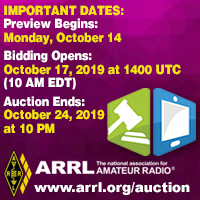 transceiver, the Kenwood TS-890S HF and 6-meter transceiver, and many more.
transceiver, the Kenwood TS-890S HF and 6-meter transceiver, and many more.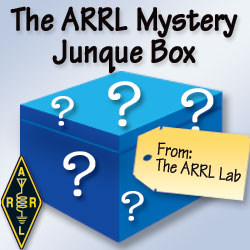 Amateur Radio Emergency Service (ARES®) training, offer continuing technical and operating education, and create instructional materials.
Amateur Radio Emergency Service (ARES®) training, offer continuing technical and operating education, and create instructional materials.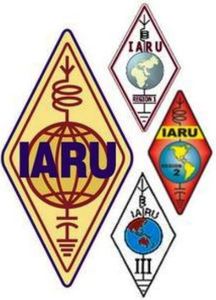 IARU Region 2 (
IARU Region 2 (.jpg)
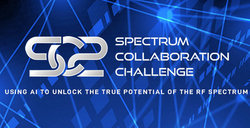 third-place winners will walk away with $2 million, $1 million, and $750,000 in prizes, respectively.
third-place winners will walk away with $2 million, $1 million, and $750,000 in prizes, respectively.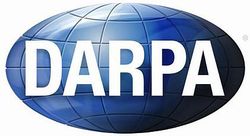 "The novel approaches developed by our competitors could enable us to make more efficient use of the spectrum we currently have available, and possibly forestall spectrum scarcity that threatens future performance as more and more devices come online," Tilghman said.
"The novel approaches developed by our competitors could enable us to make more efficient use of the spectrum we currently have available, and possibly forestall spectrum scarcity that threatens future performance as more and more devices come online," Tilghman said.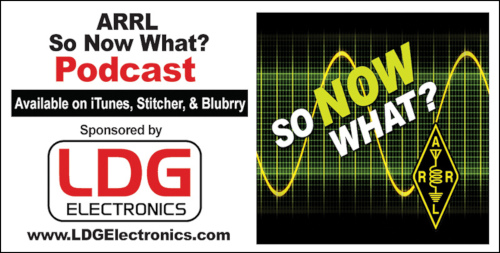 If you're a newly licensed Amateur Radio operator, chances are you have lots of questions. This biweekly podcast has answers! So Now What? offers insights from those who've been just where you are now. New episodes will be posted every other Thursday, alternating new-episode weeks with the
If you're a newly licensed Amateur Radio operator, chances are you have lots of questions. This biweekly podcast has answers! So Now What? offers insights from those who've been just where you are now. New episodes will be posted every other Thursday, alternating new-episode weeks with the 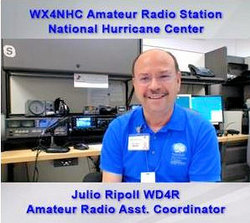 Ripoll cited the WX4NHC volunteer staff of approximately 30 radio amateurs who gather and essentially screen information gathered via Amateur Radio for weather data that may be of use to forecasters.
Ripoll cited the WX4NHC volunteer staff of approximately 30 radio amateurs who gather and essentially screen information gathered via Amateur Radio for weather data that may be of use to forecasters.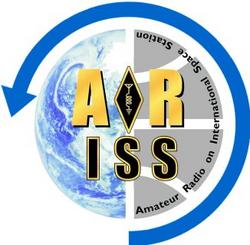 opportunities, ARISS is looking for organizations that will draw large numbers of participants and integrate the contact into a well-developed education plan.
opportunities, ARISS is looking for organizations that will draw large numbers of participants and integrate the contact into a well-developed education plan.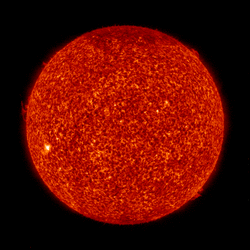 Predicted solar flux is 68 for the next 45 days, October 3 - 16. Predicted planetary A index is 12 and 8 on October 3 - 4; 5 on October 5 - 9; 8, 5, 8, and 12 on October 10 - 13; 8 on October 14 - 15; 5 on October 16 - 20; 12, 5, and 5 on October 21 - 23; 18, 25, 12, and 10 on October 24 - 27; 8, 8, and 12 on October 28 - 30; 8, 8, and 12 on October 31 - November 2; 5 on November 3 - 5; 8, 5, 8, 10, 8, and 8 on November 6 - 11, and 5 on November 12 - 16.
Predicted solar flux is 68 for the next 45 days, October 3 - 16. Predicted planetary A index is 12 and 8 on October 3 - 4; 5 on October 5 - 9; 8, 5, 8, and 12 on October 10 - 13; 8 on October 14 - 15; 5 on October 16 - 20; 12, 5, and 5 on October 21 - 23; 18, 25, 12, and 10 on October 24 - 27; 8, 8, and 12 on October 28 - 30; 8, 8, and 12 on October 31 - November 2; 5 on November 3 - 5; 8, 5, 8, 10, 8, and 8 on November 6 - 11, and 5 on November 12 - 16.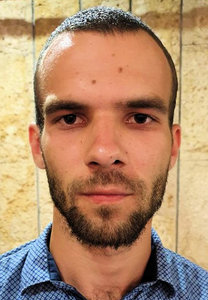
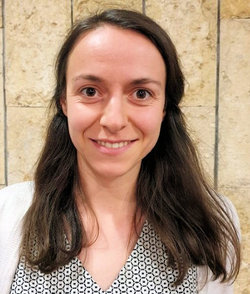
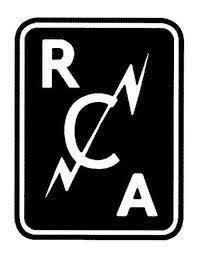 The Vivian A. Carr Award: Margaret Lyons, in recognition of an outstanding woman's achievements in the wireless industry.
The Vivian A. Carr Award: Margaret Lyons, in recognition of an outstanding woman's achievements in the wireless industry.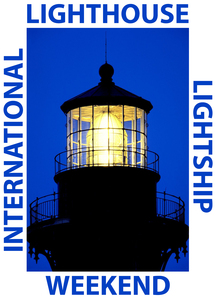 The International Lighthouse/Lightship Weekend (
The International Lighthouse/Lightship Weekend (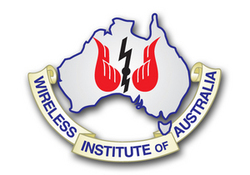 Australian Regulator Reinstates US Amateur Radio License Reciprocity The Wireless Institute of Australia (WIA)
Australian Regulator Reinstates US Amateur Radio License Reciprocity The Wireless Institute of Australia (WIA) 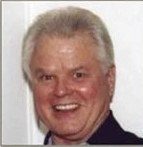 Former ARRL North Texas Section Manager Phil Clements, K5PC, of Ben Wheeler, Texas, died on September 23. An ARRL Life Member, he was 79. Clements served as ARRL North Texas Section Communications Manager/Section Manager from 1979 until 1989. (ARRL changed the position title to Section Manager in 1984.) Clements was a pilot for Braniff Airways and Airborne Express.
Former ARRL North Texas Section Manager Phil Clements, K5PC, of Ben Wheeler, Texas, died on September 23. An ARRL Life Member, he was 79. Clements served as ARRL North Texas Section Communications Manager/Section Manager from 1979 until 1989. (ARRL changed the position title to Section Manager in 1984.) Clements was a pilot for Braniff Airways and Airborne Express.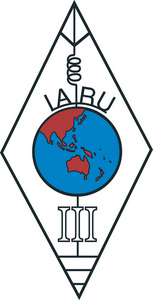 IARU Region 3 Provides for Satellite Uplinks on 15 Meters International Amateur Radio Union Region 3 (Asia, Pacific) has approved a modified
IARU Region 3 Provides for Satellite Uplinks on 15 Meters International Amateur Radio Union Region 3 (Asia, Pacific) has approved a modified 







